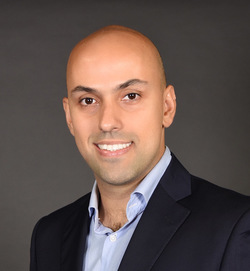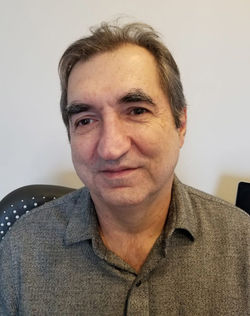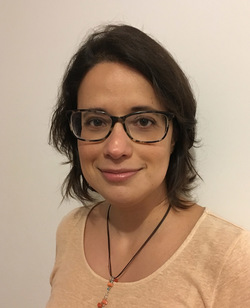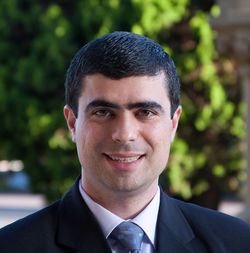Unmasking the Economy of Brazil: Challenges and Comparative Advantages after COVID-19
Brazil is among the countries that have been hit the hardest by the coronavirus pandemic. What will Brazil's economy look like after the pandemic? Are there any hidden opportunities? How will Brazil's poor and middle-class fare? The panelists will present some of the economic effects of this dramatic health crisis and its impacts both in the short and the long run. They will discuss examples of economic policies that could alleviate the negative effects but also leverage the hidden potentials of the Brazilian economy.
Panelists: João Ayres, Marco Bonomo, Mariana Jansen
Moderator: Marinho Bertanha
PLEASE NOTE:
- This event will be in English (with simultaneous translation to Portuguese).
- The indicated event times are Eastern Time (12:00pm - 1:30pm São Paulo).
Panelists
João Ayres

João Ayres is a Research Economist in the Research Department at the Inter-American Development Bank. He received his B.Sc. in Economics from the University of Sao Paulo, his M.Sc. and D.Sc. in Economics from Getulio Vargas Foundation, and his Ph.D. in Economics from the University of Minnesota. During his studies, he held visiting positions at Columbia University, Federal Reserve Bank of New York, and worked as a Research Analyst at the Federal Reserve Bank of Minneapolis. His research focuses on international economics, macroeconomics, and public finance.
Marco Bonomo

Marco Bonomo is a professor of economics at Insper. His main research interests are in macroeconomics, finance and the Brazilian economy. His research appeared in several academic journals such as Review of Financial Studies, Journal of Monetary Economics, Journal of Econometrics, Journal of Money, Credit, and Banking, Journal of Development Economics. In addition to his academic work, he has also done research for government and multilateral organizations, as the Ministry of Finance of Brazil, IDB, IMF, and the World Bank. He is currently a member of the Economic Cycle Dating Committee of Brazil (CODACE, IBRE-FGV), and of the CVM (Brazilian Securities Exchange Commission) Behavioral Studies Nucleus. He served as president of the Brazilian Econometric Society and of the Brazilian Finance Society. Previously, he has been a faculty member of EPGE-FGV and PUC-Rio. He holds a Ph.D. in Economics from the Princeton University, master and bachelor’s degrees in economics from PUC-Rio.
Mariana Jansen

Mariana Jansen is a professor at the Department of Economics and the Master 's Program in Political Economy at the Pontifícia Universidade Católica de São Paulo (PUC-SP). Assessor to the Rector's Office. Coordinator of the specialization course in urban economics and public management at PUC-SP. Degree in Economic Sciences from the Universidade Estadual de Campinas - Unicamp (2004), a master's degree in Political Economy from the Pontifícia Universidade Católica de São Paulo - PUC-SP (2007) and a doctorate in Public Health from Faculdade de Saúde Pública - USP (2016). She has experience in the area of Brazilian and Social Economy, acting mainly on the following themes: Brazilian economy and public policies, political health economics, public social policies.
Moderator
Marinho Bertanha

Marinho Bertanha is the Gilbert F. Schaefer Assistant Professor of Economics at the University of Notre Dame. Prof. Bertanha is an econometrician whose research agenda focuses on causal inference, policy evaluation, resampling methods, and hypothesis testing. He received his Ph.D. in Economics from Stanford University in 2015, spent one year as a post-doc fellow at the University of Louvain in Belgium, and one year as a visiting professor at the University of Chicago.
Originally published at saopaulo.nd.edu.